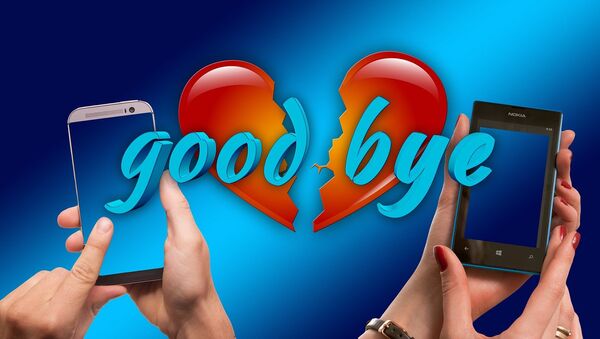Nomophobia has been touted as the 21st century's leading fad diagnosis — scientists, lawyers, therapists and even legislators have been quick to suggest claims of smartphone addiction are at best exaggerated, at worst self-serving fiction. However, the researchers believe they have conclusively identified the syndrome, based on how individuals perceive and value their smartphones — their research model found a clear link between personal memories and user attachment to phones, leading to pronounced tendencies to phone proximity-seeking behavior.
Obsessional relationships with phones stem from their highly advanced and increasingly personalized nature — they in effect become an extension of their owner. After all, as well as storing meaningful photos and messages, mobiles act as a gateway to an enormous array of apps, websites and services that let users quickly access content that's important to them.
While the researchers used a relatively small sample group, of 300 students, and conceded their findings may not be transposable to all smartphone users, they nonetheless contend the symptoms they identified will undoubtedly become more widespread in the future, as technology becomes even more personalized and humans grow ever more reliant upon it.
"As smartphones evoke more personal memories, users extend more of their identity onto their smartphones. When users perceive smartphones as their extended selves, they are more likely to become attached to the devices, which, in turn, leads to nomophobia by heightening the phone proximity-seeking tendency. Recent smartphone and app development seems to inevitably increase users' attachment, as the technology and related services become increasingly personalised and customisable. This suggests that users should be conscious not to become overly dependent on smartphones while benefitting from the smartness of the technology," the authors state.
The good news for those infatuated with their iPhones and Android devices is nomophobia is is far from incurable — the team believe "defined and protected" periods of individual separation from smartphones (not unexpected periods of separation) may allow users to "perform better" — not just by reducing interruptions but also by increasing available cognitive capacity.
Nonetheless, while the syndrome is not officially classified as a specific mental disorder by any medical or psychological body or textbook, numerous studies have shown that smartphone attachment can cause significant problems.
For instance, in 2015 excessive smartphone use was found to facilitate cognitive dysfunction — and a June McCombs School of Business report found simply having a smartphone within reach, even if it's switched off or placed face-down, reduces brain power. Even putting a smartphone in a different room was found to give brains a boost.
Despite its lack of medical recognition, in time nomophobia may, along with fear of missing out (FoMo) and fear of being offline (FoBo), join international lists of recognized phobias and neuroses.
In May, the World Health Organization named spending too much time staring at digital screens a major health risk. Their report noted there has been a dramatic increase in the time people spend staring at digital screen time since the turn of the century, and spending a mere two hours in front of tablets, computers and smartphones daily is causing people as young as 11 to suffer an increased risk of poor mental and physical health.
#Adolescents: health risks and solutions (Fact Sheet) http://t.co/oM80IK8f8k
— PAHO/WHO (@pahowho) May 14, 2014
Moreover, too much time spent connected to the digital world not only exposes individuals to the threat of cyberbullying, but can damage sleep patterns.


